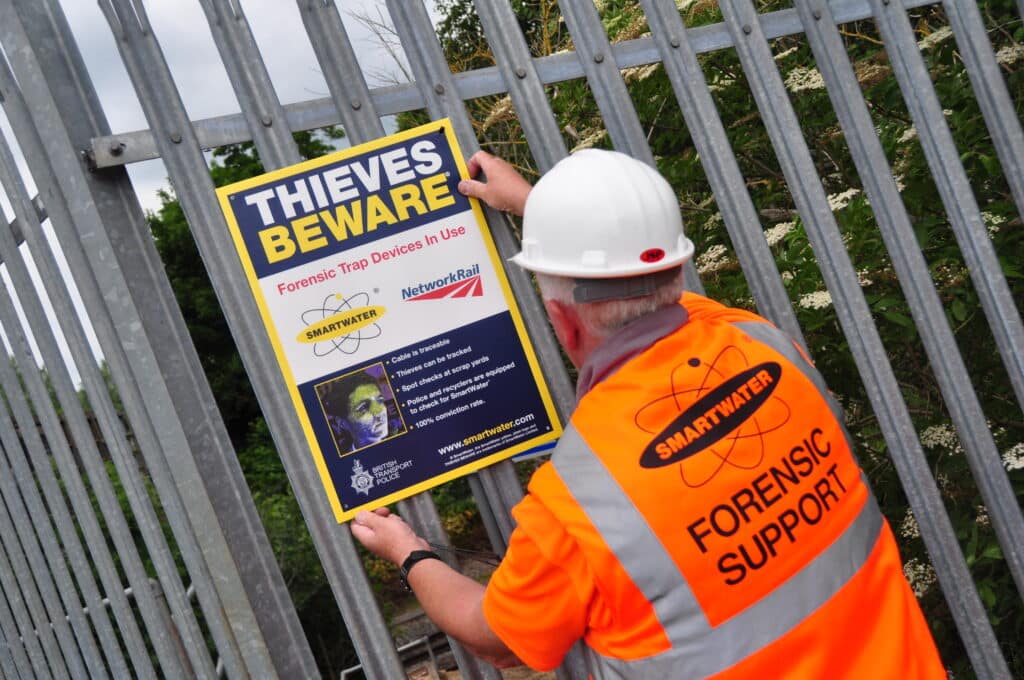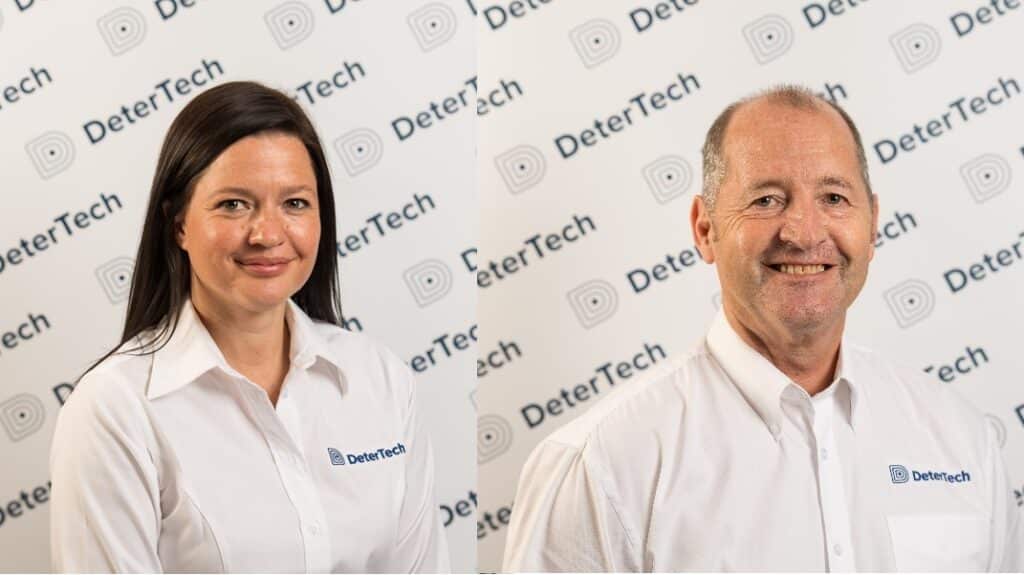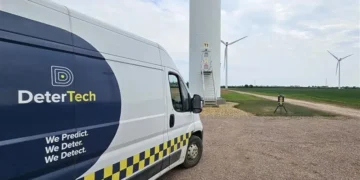DeterTech is a leader in site security and risk management for construction and critical infrastructure, with its approach grounded in three core areas of expertise: Crime Intelligence, Site Security, and Forensic Marking – or Predict, Deter, Detect. In this exclusive interview, we sit down with Head of Crime Intelligence, Rachael Oakley and Director of Security & Risk, Gary Higgins to get an overview of their solutions and the impact they have…
The crime intelligence strand of the business began with Oakley, who joined SmartWater in 2010 from the police. The company, now DeterTech, works very closely with all 43 police forces across England and Wales, having an information sharing agreement with National Police Chiefs Council, and that allows it to share crime data with all police forces.
“I have spent the last 15 years basically building trusted relationships within policing, relationships with partners and with industry, to try and get as much data as possible shared so that we can get as big, and as clear a picture of crime as possible.
“This way we can have a really good overview of where the risk is highest, and then where our solutions can have most impact, and now we’re fortunate enough to be part of DeterTech and have multiple solutions for business to be able to protect themselves and look after their own sites.”

“We don’t hold crime data from all of them, but it allows us to open up discussions where there’s sort of emerging crime trends, and it allows us to be able to get that data should we need to look at it for crime prevention purposes, but that is what we use that data for.
“We then use that data to look at where crime is highest, report on emerging crime trends, and send a series of reports out to business, policing and our partners, so that they get an understanding of where crime is at its highest. What’s important to note is that that data is not used for commercial gain.
“It empowers businesses to make informed choices about where their sites are most at risk, and then they can look at how they then secure them effectively. That’s how the crime intelligence partnership works. But obviously that involves huge amounts of work with the police. It involves that trusted relationship and partnership.”
While Oakley is involved largely with the Predict strand of the business, Higgins is focused more on the Deter, and Detect elements. These include a suite of solutions including technical camera solutions, SmartWater, its forensic marker, and its crime detection specialist support team.
“Some of our solutions are about deterrence in its rawest sense, in that they they’re big, in your face, and they make a lot of noise,” Higgins says. “The whole purpose of that is to provide a good value deterrence in high football areas or areas of high risk, whilst at the same time collecting data, collecting evidence, which is then sent into our control centre.
“We also have the forensic marker in SmartWater, which is a very powerful deterrent, very well known by the criminal fraternity. In fact, there was a study in 2007 which found that 74% of criminals won’t commit a crime where they see the SmartWater sign.
“So, it is a very powerful deterrent, which has a long successful history, and still, after over 30 years of trading, we still have 100% conviction rate in contested court cases.
“That powerful deterrent, along with the use of other solutions which complement each other create this layered, onion type effect, starting with the first line of defence, being signage, then a range of technical and forensic solutions which together are very effective at securing sites across a very wide range of industries.”
The impact this has, is that is helps takes some pressure off of a stretched policing service – stopping crime before it happens. But DeterTech also has form in helping to catch criminals and secure prosecutions.
The crime detection specialist support team is headed by Higgins, and is made up of retired police officers, mostly ex-National Crime Agency, and then supported by some technical expertise provided by trained engineers.

“Whilst operating on sites such as Network Rail where DeterTech solutions have been deployed, we might witness repeat incidents of offending – often by organised crime groups. We can then run operations, which we always do in partnership with the police, and that we write our own operational orders. We provide those to the police. We tell them exactly where we are, what we’re doing, how we’re doing it, and then we obviously rely on them to make the arrest once we’ve provided the evidence.”
DeterTech’s hero product is SmartWater, and the company prides itself on being “the only forensic marking provider in the world that provides free services to the police”. Aftercare and analysis services are particularly important alongside the product itself, which the company does via its own forensic laboratory based in Telford.
“All of the police exhibits for SmartWater come back to Telford for forensic examination, and we’ll provide expert witness testimony and supporting court evidence if required. DeterTech also provides other evidence such as HD surveillance video from its camera solutions,” Higgins explains.
DeterTech can’t quantify exactly how many more crimes have been successfully prosecuted because of its solutions, but what is clear is that, without them, policing’s finite and sometimes limited resources mean that probably wouldn’t have stretched to solving many of the thefts that have blighted businesses and national infrastructure such as Network Rail, solar and wind farms.
“The police operate within a threat, harm and risk matrix. And a lot of the type of criminality that you see as volume crime doesn’t necessarily tick the boxes within that matrix so can’t be prioritised. So, the police have to consider what they respond to, how they respond and when they respond.
“We’re able to help support the areas where there might be a weakness or delay in the police response. We can help them check the boxes they need for a prosecution – unique forensic evidence, which links the criminal directly to the scene”.
This is the first instalment of our deep dive with DeterTech, look out for the next instalment on crime trends, coming in the following weeks.
For more DeterTech news, click here





